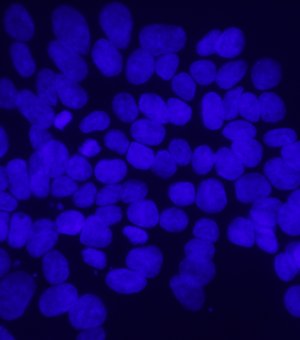Researchers in the Angiogenesis and Brain Development Laboratory (ABDL) investigate novel methods to diagnosis and treat neuropsychiatric illnesses. Traditionally, research for neuropsychiatric conditions has been neurocentric, focused on treating neurons and brain cells. Pioneering neuroscientist Anju Vasudevan, PhD took a new approach to when she began studying blood vessel formation (angiogenesis) in the developing embryonic brain and its impact on adult behaviors. Disruptions in prenatal or postnatal brain development can lead to neuropsychiatric diseases, including epilepsy, autism, schizophrenia, anxiety, and depression.
Earlier views of cerebral vascularization depicted blood vessel formation as a passive process driven primarily by oxygen demands to meet the metabolic needs of growing neuronal populations. ABDL research changed these notions to show that vascular networks of the embryonic forebrain have an organized structure. This serves as a blueprint to guide the key events of neocortical development and encode significant diversity in gene expression. It implicated a new cell type — embryonic forebrain endothelial cells. These contribute to many psychiatric disorders, with schizophrenia, bipolar, mood, and depressive disorders topping the list. The novel discovery — that intrinsic defects within embryonic forebrain endothelial cells can directly contribute to mental illness produced a new way of thinking about the origin of neuropsychiatric illnesses, opening paths to crucial new treatments.

